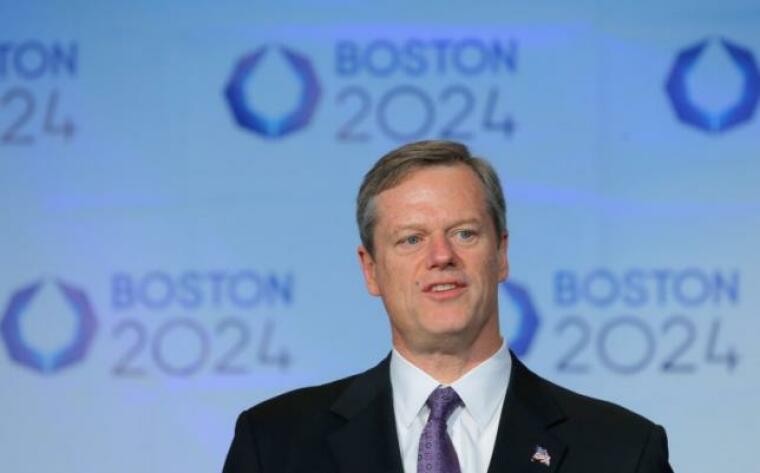Massachusetts signs transgender bathroom bill into law
Massachusetts Gov. Charlie Baker signed into law a bill that gives transgender people the right to use public bathrooms according to their gender identity.

The new law, called "an Act relative to transgender anti-discrimination," states that owners of restaurants, resorts and other public places including locker rooms "shall grant all persons admission to, and the full enjoyment of, such place of public accommodation or portion thereof consistent with the person's gender identity."
The law will take effect on Oct. 1.
Defending his decision, Baker said no person in the state should be discriminated against based on their gender identity. The new law provides "additional protections" to transgender people, he explained.
Sen. Sonia Chang-Diaz praised the new law, saying it is an important step for the state.
"Public accommodations are fundamental to equal rights in America," the senator said.
LGBT activists also hailed the decision. Human Rights Campaign president Chad Griffin said Baker has joined other Republicans who are speaking up for equal rights.
However, some people are criticizing the law. Andrew Beckwith from the Massachusetts Family Institute said the definition of "gender identity" specified in the bill is broad and can be abused even by sex offenders, who can freely access public bathrooms and locker rooms.
Beckwith also found it "disturbing" that through the law, parents who choose to protect their kids can be charged. And that's not all.
"Business owners could be fined or even jailed just for putting up a sign deemed offensive to transgender activists," Beckwith said, according to LifeSite News.
Beckwith emphasized that an individual's biological sex matters, and requiring females to share bathrooms and locker rooms with biological males is a "bad idea" regardless of the males' gender identity.
He also expressed disappointment in Baker for not delivering the promise he gave during the campaign by signing the bill into law.
 Christians don't have to affirm transgenderism, but they can’t express that view at work: tribunal
Christians don't have to affirm transgenderism, but they can’t express that view at work: tribunal Archaeology discovery: Medieval Christian prayer beads found on Holy Island
Archaeology discovery: Medieval Christian prayer beads found on Holy Island Presbyterian Church in America votes to leave National Association of Evangelicals
Presbyterian Church in America votes to leave National Association of Evangelicals Over 50 killed in 'vile and satanic' attack at Nigerian church on Pentecost Sunday
Over 50 killed in 'vile and satanic' attack at Nigerian church on Pentecost Sunday Ukrainian Orthodox Church severs ties with Moscow over Patriarch Kirill's support for Putin's war
Ukrainian Orthodox Church severs ties with Moscow over Patriarch Kirill's support for Putin's war Islamic State kills 20 Nigerian Christians as revenge for US airstrike
Islamic State kills 20 Nigerian Christians as revenge for US airstrike Man who served 33 years in prison for murder leads inmates to Christ
Man who served 33 years in prison for murder leads inmates to Christ


 Nigerian student beaten to death, body burned over ‘blasphemous’ WhatsApp message
Nigerian student beaten to death, body burned over ‘blasphemous’ WhatsApp message 'A new low': World reacts after Hong Kong arrests 90-year-old Cardinal Joseph Zen
'A new low': World reacts after Hong Kong arrests 90-year-old Cardinal Joseph Zen Iran sentences Christian man to 10 years in prison for hosting house church worship gathering
Iran sentences Christian man to 10 years in prison for hosting house church worship gathering French Guyana: Pastor shot dead, church set on fire after meeting delegation of Evangelicals
French Guyana: Pastor shot dead, church set on fire after meeting delegation of Evangelicals ‘Talking Jesus’ report finds only 6% of UK adults identify as practicing Christians
‘Talking Jesus’ report finds only 6% of UK adults identify as practicing Christians Mission Eurasia ministry center blown up in Ukraine, hundreds of Bibles destroyed: 'God will provide'
Mission Eurasia ministry center blown up in Ukraine, hundreds of Bibles destroyed: 'God will provide' Church holds service for first time after ISIS desecrated it 8 years ago
Church holds service for first time after ISIS desecrated it 8 years ago Burger King apologizes for 'offensive campaign' using Jesus' words at the Last Supper
Burger King apologizes for 'offensive campaign' using Jesus' words at the Last Supper Uganda: Muslims abduct teacher, burn him inside mosque for praying in Christ’s name
Uganda: Muslims abduct teacher, burn him inside mosque for praying in Christ’s name